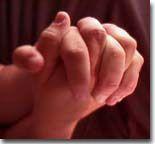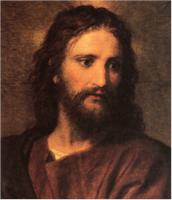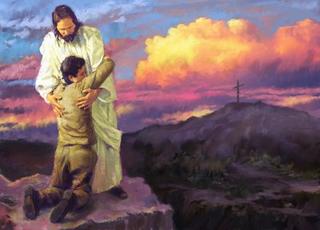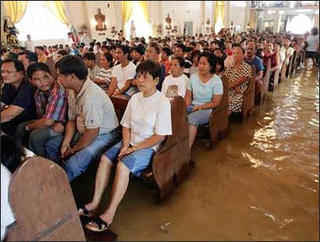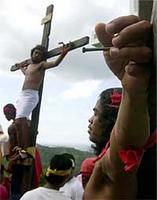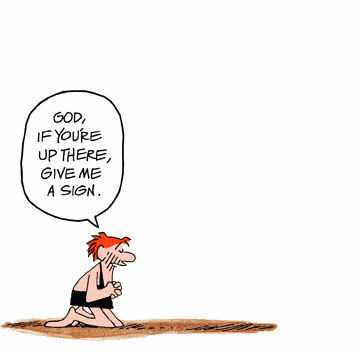On September 8, Catholics all-over the world (and some Protestants too) will celebrate the Feast of the Birth of the Virgin Mary. I have decided to quote Fr. Miguel Bernad, S.J.'s article which appeared on The Philippine Star for this ocassion.

PROTESTANTS RE-DISCOVER MARY
MANILA, August 15, 2005 (STAR) AT RANDOM By Miguel A. Bernad, S.J. - A recent issue of Newsweek devoted almost half its pages to an article on new developments among Protestants regarding the Blessed Virgin Mary. A significant number of American Protestant theologians and preachers have come to realize that there is more in the Bible about the Virgin Mary than they had paid attention to in the past.
In general, Protestants have been reluctant to concede any special honor to Mary. They were willing to admit that she was the Mother of Jesus — and that was all. They condemned any special honor paid to her. "An ordinary woman, like anybody else," they said. "An ordinary housewife."
But of late, some theologians and preachers, by more careful reading of the Bible, have come to realize that Mary was really an important figure. Much space in the Gospels is devoted to her: the Anunciation, the Visitation, the hymn "Magnificat" that St. Luke puts in her mouth; the loss of the Child Jesus during a visit to Jerusalem, and looking for him for three days and finding him in the Temple.
According to the Gospel of St. John, it was at Mary’s suggestion that Jesus worked his first miracle, the changing of water into wine at the marriage feast of Cana. He did it after merely a hint from her.
But what really impressed the Protestant theologians and preachers was the fact that at the crucifixion, Mary was there on Calvary. A mother who is willing to stand the whole time while her Son was in terrible agony on the cross, just standing there till he died and then to be among those to take care of his body, must have been a woman of extraordinary psychological strength.
The Protestant theologians are saying, "We Protestants accept nothing except what is in the Bible, and yet, there is much in the Bible about Mary that we have not been paying attention to."
Protestants are not yet ready to accept the doctrine of the Immaculate Conception (that Mary was sinless from the beginning of her existence in her mother’s womb), and the doctrine of the Assumption (that Mary is alive in heaven, body and soul, with her Son). But if they reflect on the data of Scripture, they will see that these doctrines are perfectly logical.
At the Anunciation, Mary is told that she would become the Mother of the Redeemer. She accepted: "Behold the handmaid of the Lord, be it done to me according to your word."
At that moment, by the power of the Holy Spirit, she conceived a Child in her womb. That Child was the Divine Word who thus becomes a man. It is in Mary’s womb that God becomes incarnate.
By becoming man, God sanctifies the world.
It is the beginning of redemption, culminating later on the cross. And this beginning of redemption takes place in Mary’s womb.
It is in her womb that we are all redeemed.
Surely (as Rahner points out) that makes Mary a very special person. She is more than just "any ordinary woman." More than just "any ordinary housewife." She is the Mother of the Redeemer as Redeemer. That entitles her to special respect and honor.
Article source
